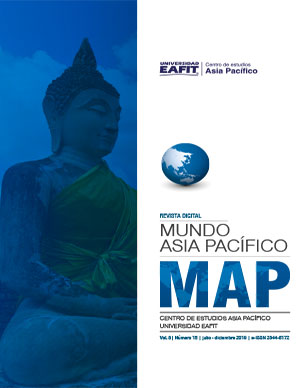Japanese collectivism: cultural heritage and gateway to the future
Main Article Content
Keywords
Japan, Colombia, Society, Culture, History, Multiculturalism
Abstract
The conjunctural situations in terms of culture and society at a global scale could be analyzed by framing two pre-established psychological concepts: The Individualism and the Collectivism. For the purpose of comparing two different cultures, as are the Japanese and the Colombian, the main goal of this article is to understand, the cultural shocks that many Japanese citizens experience when visiting Colombia and those that the great majority of Colombians struggle when arriving Japan.
Downloads
References
Bergiel, E. y Bergiel, B. (2012). Revisiting Hofstede’s Dimensions: Examining the Cultural Convergence of the United States and Japan. American Journal of Management, 12(1), pp. 69-80.
Kobayashi, E., Kerbo, H. R., & Sharp, S. F. (2009). Differences in Individualistic and Collectivistic Tendencies among College Students in Japan and the United States. International Journal of Comparative Sociology, 51(1-2), 59-84. DOI: 10.1177/0020715209343424
Matsumoto, D., Takeuchi, S., Andayani, S., Kouznetsova, N. y Krupp, D. (1998). The Contribution of Individualism vs. Collectivism to Cross-National Differences in Display Rules. Asian Journal of Social Psychology, 1(2), 147-165. DOI: 10.1111/1467-839x.00010
Triandis, H. C. (2018). Consequences of Individualism and Collectivism. Individualism and Collectivism, 107-144. DOI: 10.4324/9780429499845-5
Triandis, H. (1998). Individualism and Collectivism: Cross-Cultural Perspectives on Self-Ingroup Relationships. Journal of Personality and Social Psychology. Consultado el 12 de mayo de 2019.

